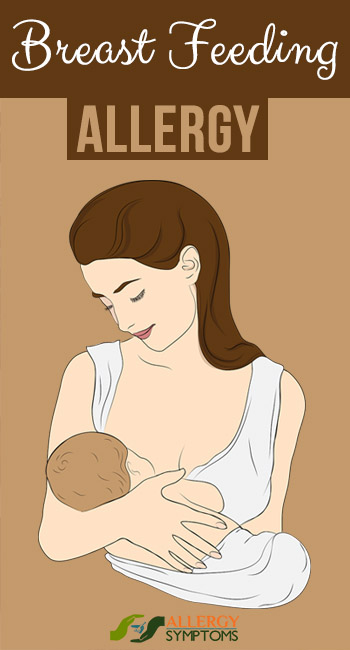If you have been told that your breastfed has food allergies, then you may be wondering to what do next?
Breastfeeding ensures that your baby gets enough nutrition to grow and develop healthily, and it’s very important for mother child bonding as well.
For very first months your baby needs breastfeeding for its growth and development. World health organization recommends that breastfeeding should continue for first six months as it contains anti bodies which helps the immune system of the baby to develop and avoid certain infections.
Allergies are rare in breastfeeding babies, mild allergies may be seen typically present with eczema and gastrointestinal symptoms.
Proteins from the food that you eat can appear in your milk within 3-6 hours after eating. If you eliminate these foods from your diet the proteins will disappear from the breast milk and baby health will slowly improve.
There are no restrictions or recommendations to avoid any food when you are breastfeeding but according to the symptoms avoid some of the food items which causes allergy to your baby.
Common food that causes allergy
The following foods are the cause of allergies.
- Eggs
- Nuts
- Peanuts
- Soy
These are some of the food items that need to be avoided when you are breast feeding. The best way to prevent your baby from allergies is maintain a food dairy of what you are eating this may help you to get rid of allergies.
Symptoms and Warning signs of an Allergy
Some of the symptoms and warnings side for a baby to be allergic by the food of mothers diet include:
- Change in appearance and consistency of stools.
- Acidic nature in stools may develop red rashes for babies around their anus and nappy rash.
- Some babies are allergic to certain proteins in mothers diet and may lead to eczema and hives
- In case of food allergy of a lower degree there may be failure to thrive, malnutrition and adequate weight gain.
- Some babies may born with a condition called deficiency of enzyme called lactase, which leads to disease called galactosemia. These babies do not have strength to break down lactose and galactose into simple sugars to be able to absorb them.
- When a baby has milk allergy, then mother need to avoid all milk products and advised to take calcium suppliments with milk free diet.
Foods to avoid
Often it is better to remove all dairy products from your diet to get rid of breast feeding allergy.
Look out some of the food items with these labels and avoid them completely when you are a breastfeeding mother.
- Buttermilk
- Cream
- Artificial flour
- Casein
- Caseinates
- Cotton cheese
- Custard
- Ghee
- Pudding
- Recaldenet
- Sour milk solids
- Sour cream
- Dry milk solids
- Yogurt
- Lactulose
- Lactulblumin
- Lactalglobulin
- Butter, butter fat, butter oil
Some of the other products which include the ingredients of milk as follows:

- Chocolates
- Flavourings
- High protein flour
- Lactic acid starter
- Lactose
- Margarine
- Lunch meat
- Hot dogs
- Caramel candies and
- Non dairy products
What Should You Eat?
- You can maintain well balanced diet even without using dairy products. You can get plenty of protein from meat, fish, chicken, beef, nuts and beans.
- You can also have calcium products which increases your strength to avoid the allergens easily.
- You can also try multivitamin medicines, but make sure you read the labels before you buy the medicine; they may also contain hidden allergens.It may take month or more than a month to improve the symptoms of a baby. If you didn’t find any symptoms, even after changing your diet, you may need to avoid some of the foods like wheat, eggs, soy and peanuts.
- Some babies are allergic to more than one food so you need to be restrict your diet until it improves the baby health.
Breast milk provides vitamins and important health benefits for your baby and reduces the cause of chronic diseases such as diabetes and obesity.

